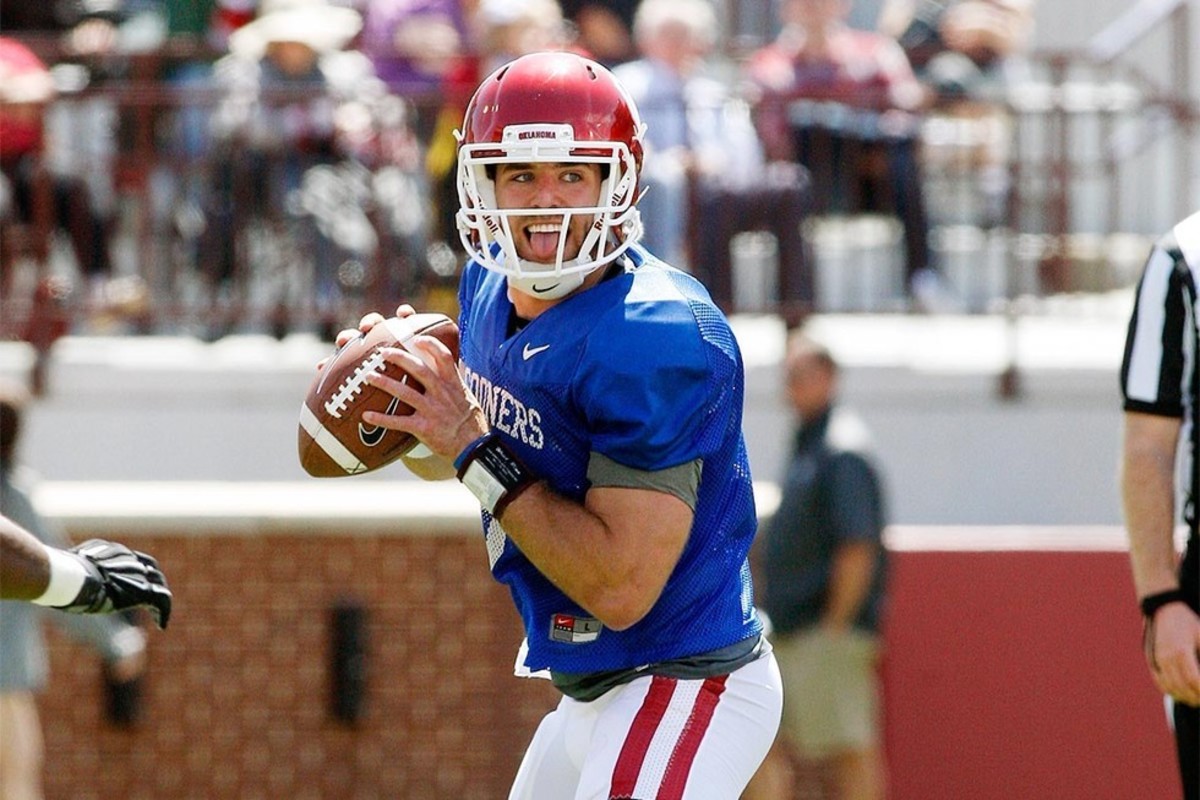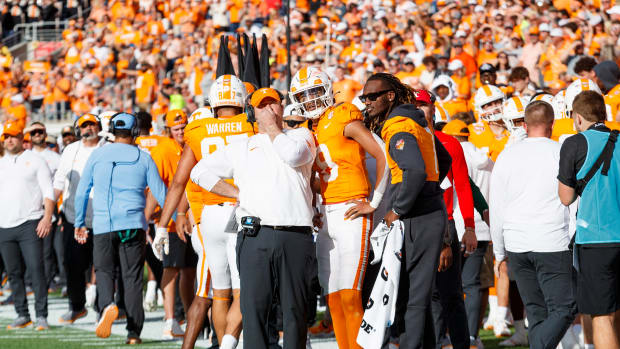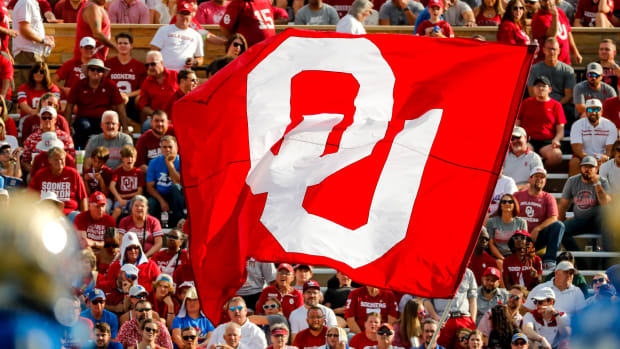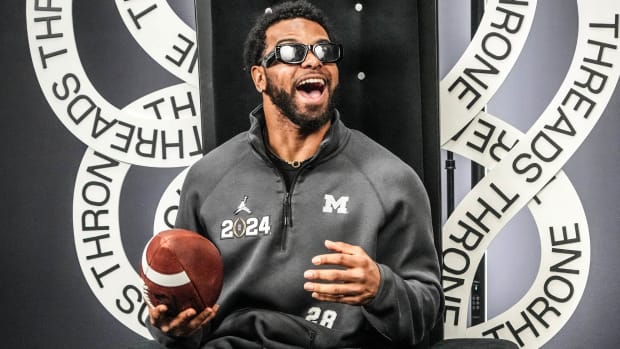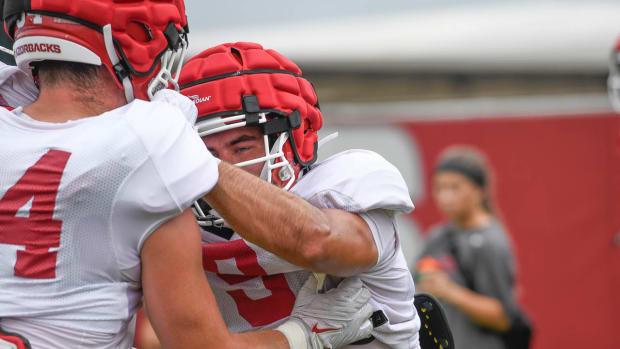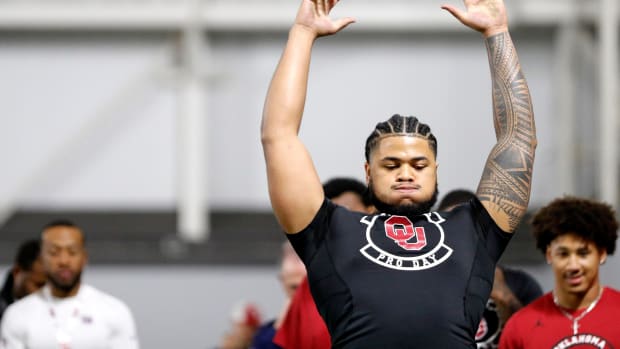Trevor Knight: Transferring to Texas A&M was right for me, and grad transfers are right for college football
[video: 13724881]
This is Part VII of an eight-part series on the recruiting, development and evolution of quarterbacks. The next installment will be later Thursday with a feature from Chris Johnson on the top quarterback recruits in the class of 2018.
Sometimes when I think about it, it's crazy that I wound up here, at Texas A&M. If you know my journey, you'll understand why I say that. Let me explain.
Going through the recruiting process at 17 and 18 years old is a lot of fun, but your mind starts spinning. You don't have a manual or a rule book to guide you through the process; you decide, with your family and maybe your high school coach, the best way to go about it and figure out what works for you.
I was fortunate to receive a lot of scholarship offers from all over the country but as a San Antonio native, I knew I wanted to stay home, in Texas, close to my family. So I committed to coach Mike Sherman and the Texas A&M Aggies and thought I was done.
Then I was urged to go to a Junior Day in Norman at the University of Oklahoma. On our way home, I looked at Connor, my twin brother, and we both knew OU was the perfect place for us. So I switched my commitment.
Those four years at Oklahoma—I wouldn't trade them for anything in the world. It was incredible. I started as a young guy, played in front of 85,000 fans, ran out of the tunnel to play Texas in the Red River Rivalry while people screamed their lungs out. I remember everything about my first touchdown pass—12 yards to Jalen Saunders on a corner route to the left side against Louisiana Monroe in my debut as a starter in 2013—and our 45–31 win over Alabama in the 2014 Sugar Bowl.
JOHNSON: Are spread offenses actually hurting QBs' draft stocks?
How many people get to say they threw a touchdown pass to their twin brother in a Big 12 football game? (Thanks again for catching that 17-yarder against Kansas last season, Connor.) In Norman, I got to live out so many of my dreams. And it wasn't just on the field: There were day-to-day interactions with my adopted brothers and lessons in leadership. There was waking up early on Friday mornings and finding Eric Striker jumping around the locker room, passing on his energy to everyone else, Monday mornings when you dreaded running the stadium stairs but got out of bed because you couldn't wait to be with your brothers. There are lots of people who will never really understand those memories except for the guys who were with you. That's how it should be.
I get asked a lot about what it was like for me when Baker Mayfield transferred in from Texas Tech. To be honest, I didn't struggle as much as you would think. In 2014 I dealt with some injuries, sat out three weeks and made the decision to come back and play against Clemson in the Russell Athletic Bowl. Before 2015, we brought in a new offensive coordinator in Lincoln Riley and opened up the quarterback competition. It turned out Baker was the best option for us, and obviously it was a good decision—look at our record. We went to the College Football Playoff, and Baker was an All-America.
Throughout last season, all I did was try to be the same guy every day. I think if you ask anybody, they'd tell you I was a big, and present, part of that team. Was being the backup a confidence killer in a way? Yes, especially after you've been The Guy. It's hard to swallow, but I had no bitterness. I can honestly say that last season was a joy. As a little kid I dreamed about being part of the top program in the country and winning it all, and I had a shot at that.
But still, toward the end of the year, I missed playing and being on the field. And because of the fifth-year graduate transfer rule, I knew I could get back there.
[video: 13724881]
Let's be clear about something: It's important to me to be a man of my word. I was a captain in 2015, and I didn't want anyone to think I wasn't 100% committed to the Sooners. I loved OU and it was going to take the perfect situation to pull me away from there. When I finally built up the courage to go talk with coach Stoops, he handled it with more grace than I could imagine. Same with coach Riley.
If you look at it from a negative standpoint, coach Riley was the guy who came in and demoted me. But I look at it from the positive: He taught me so many valuable lessons about leadership and football. And he understood where I was coming from in wanting to play because he had been through similar situations as a coach. He'd been at places he loved but still wanted other opportunities. When I got my release, it was coach Riley who told me to transfer only if I found something I wanted to run toward; not to settle or move just because it would be more comfortable. Only go if it would impact the rest of my life. That's what I found at A&M.
I've heard some coaches complain about the grad transfer rule, say they don't like it or don't think it's "right." I hear some people say we have a transfer epidemic. Well, there are a lot of similarities to coaches leaving for what they call better opportunities—why is it different for players? The majority of transfers in college football are positive; it winds up being a better situation for the individual player and program. During recruiting, coaches talk to prospects and their parents about going to a university to get their education. Whether coaches believe it or just preach it, kids hear that and most of us buy in. So if you put in your time and effort to get your undergraduate degree (which I did, in business management), why does any outsider have the right to question what's right for you?
The recruiting process as a mature student-athlete is different than as a teenager. Coaches don't focus as much on trying to show off the facilities or the uniforms. We talk seriously about what I could accomplish in one season. For me, I felt instantly comfortable at A&M. I know what happened in the off-season with the other quarterbacks transferring out, but I also know the media and outside talk can sometimes make situations sound a lot worse than they really are. I believe in the culture at A&M. I believe in the people here, and the direction coach Sumlin is taking the program. The community here is really tight knit, and the football family wrapped its arms around me from the moment I arrived. I feel like I've already been here four years. I couldn't have asked for a better situation—and that's why I ran toward it.
If I had to give advice to the younger generation, it's to not let recruiting get in the way of you having fun. But more than that, if you do decide you want to transfer, you need to handle it the right way. There's a time and place for everything, and you need to remember that relationships are at stake. Don't make a big deal about it and don't make it all about you. Remember why you play in the first place—because of your brothers. If you decide to leave, don't lose them in the process. I pride myself on the fact that I could go back to Norman right now and be accepted internally and externally with the fans, the university and all my old teammates and coaches.
And not just because I still have all my OU gear, and consider myself a huge Sooners fan.
